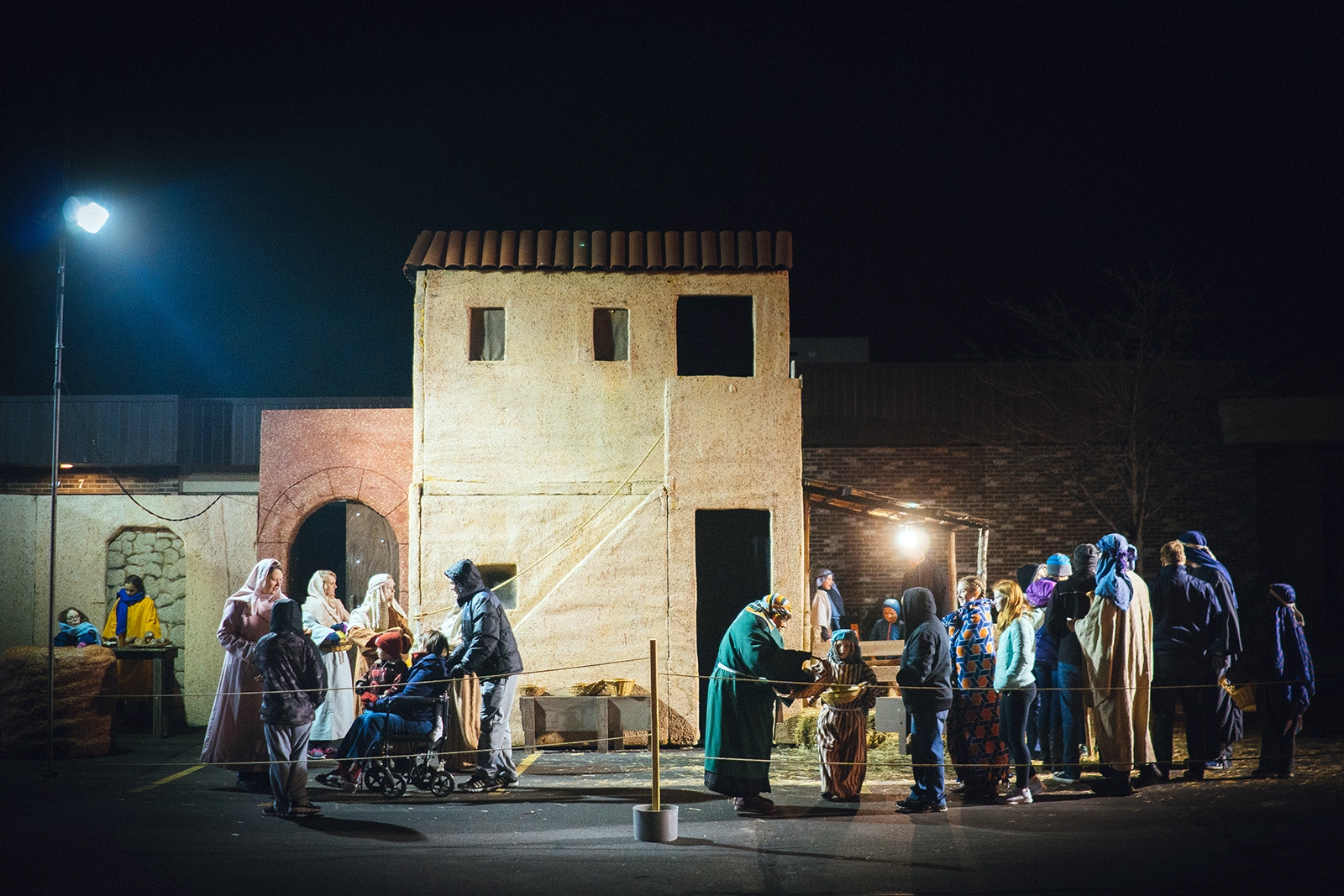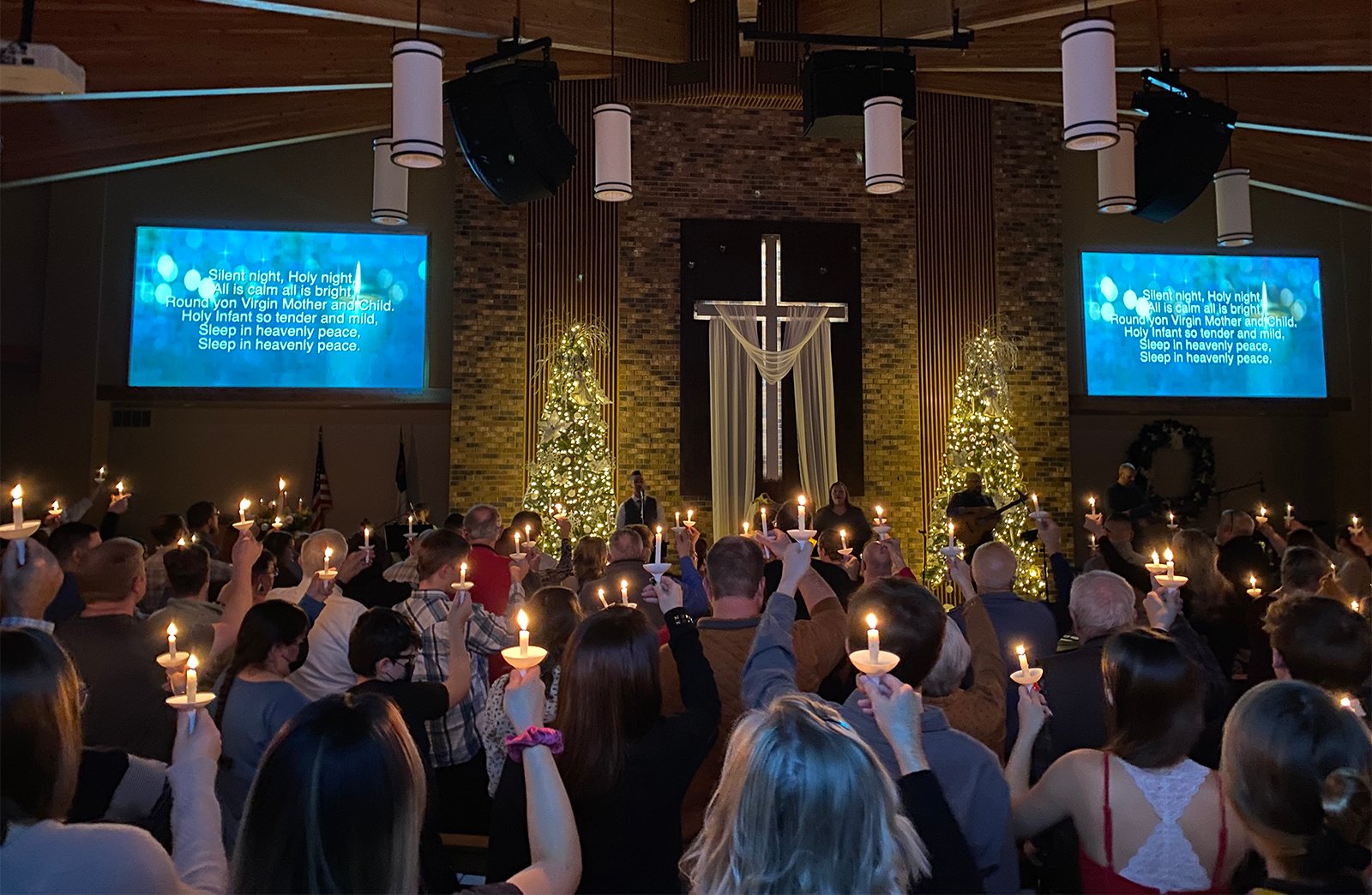(RNS) — A few hours after the Washington National Cathedral posted on Facebook on Wednesday (Nov. 29) that admission to its Christmas family service and Advent concerts this year would require a $7 ticket, the cathedral backed down in the face of the ire of its own parishioners and apologized for its decision.
In a statement on its website, the Episcopalian Cathedral acknowledged selling tickets would put a “barrier to worship” and said it would reimburse all those who had already purchased tickets. Tickets will still be required for entry at this season’s events, but they will be free.
Funds from the sale, presented as “processing fees,” were supposed to cover the cost of welcoming the expected 25,000 to 30,000 people who will flock to the National Cathedral for the flurry of rites and celebrations that will take place from Advent, which begins Sunday, through the Christmas season.
“Christmas at the Cathedral is probably the busiest time of the entire year,” said Kevin Eckstrom, the cathedral’s chief public affairs officer. Though the cathedral sees some 400,000 visitors a year, the concentration of people and events at Christmas means managing dizzying logistics and more supplies.
“We have people who literally fly across the country to be with us. Some people tell us that this is a bucket list item for them,” said Eckstrom.
The 117-year-old landmark, originally built with funds appropriated by Congress, serves as a bastion of civic religion, where presidents, senators and other dignitaries have been memorialized, no matter their faith. But it is also an active cathedral of the Episcopal Church and the seat of Washington’s Episcopal bishop, Mariann Edgar Budde.
Regular parishioners don’t have to worry about getting a ticket, as the cathedral tries to reserve seats for them, Eckstrom explained.
Many of the country’s most significant churches require some kind of passes for Advent celebrations and Christmas Masses, due to the high demand at the holiday season, often awarding them by lottery. That practice has been going on at New York’s St. Patrick’s Cathedral for decades.
From June to Nov., non-parishioners are invited to register for St. Patrick’s very selective Christmas Midnight Mass ticket lottery. This year, 25,000 applicants vied for just 800 tickets. Regular members of the congregation, as well as New York City officials, receive reserved tickets.
This year’s calendar adds an extra challenge for many well-attended churches, as Christmas falls on a Monday. That means many liturgical congregations will celebrate the last Mass of Advent on Sunday morning before shifting to Christmas Eve vigil Masses in the afternoon, followed by Christmas Mass on Monday morning.

Walk-through guests interact with the cast at the Bethlehem market during the 2015 Lafayette Living Nativity, which is hosted by Faith Church of Lafayette, Indiana. Photo courtesy of Faith Ministries
The Rev. Juan Ochoa, of the Archdiocese of Los Angeles, said the quirk of the calendar, which happens every five or six years, will make Dec. 24 something of a sprint for the Cathedral of Our Lady of the Angels, the headquarters of the largest Catholic diocese in the United States.
“On Sunday morning, we are still celebrating the season of Advent; we are not celebrating Christmas yet. There are no Christmas lights. But then, in the afternoon, we need to transition into the Christmas season,” he said.
Immediately after the last Advent Mass finishes at noon, volunteers will be on hand to deck the church with Christmas decorations before the first Christmas Eve Mass starts at 4 p.m.
Thirty miles south, at Christ Cathedral in the Diocese of Orange, the Very Rev. Thai Bao said that the traditional schedule of 10 Sunday Masses — sung in English, Viet, Chinese and Spanish to accommodate his multi-ethnic congregation — will be amended on the 24th, omitting the Chinese service to make preparations for Christmas Eve.
The church, a glass canopy built as the Crystal Cathedral by the televangelist Robert Schuller from designs by Richard Neutra and Richard Meier, usually welcomes 1,000 people at each Sunday Mass. It expects twice as many visitors on Christmas weekend, said Thai, who added that he has never had to refuse entry to anyone on Christmas.
Washington’s Basilica of the National Shrine of the Immaculate Conception, a Catholic church and the largest Roman Catholic church building in the United States, is also a multi-lingual congregation. It plans to keep its regular Sunday Mass schedule by merging its Spanish and English morning Masses.
The basilica’s rector, the Rev. Msgnr. Walter R. Rossi, is aware some will be tempted to skip a Mass because of the cramped schedule. “There is no 2-for-1 deal!” he cautions. “You have to go to Mass on Sunday and Monday or twice on Sunday: once in the morning and once in the evening.”
Even with the crowded schedule of Masses on the 24th, the basilica’s congregation will take a few moments for “the blessing of the Bambinelli,” a tradition, begun by Pope St. John Paul II, in which parishioners bring the infant Jesus figures from their creches for a blessing. A beloved custom held every year on the last Sunday of Advent, the blessing won’t yield to the frenzy of the afternoon.

